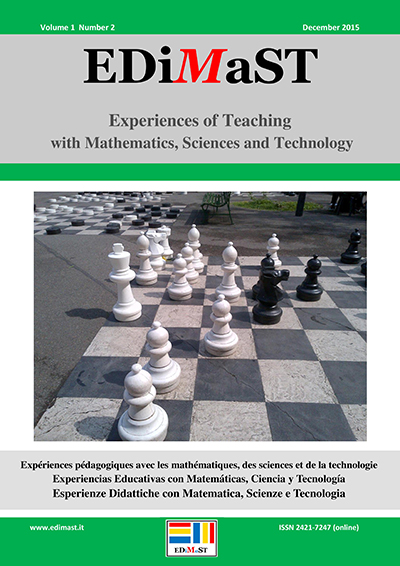Meaning Equivalence Reusable Learning Object An unexpected mathematical problem: the Dido's myth
Keywords:
Argumentation, Meaning equivalence, Isoperimetric, Duvall, Merlo Project, Mathematic modelAbstract
This paper describes a learning activity carried on in the third class of a first level secondary school
(middle school) and in the first two years of a second level secondary school (high school). The teaching
practices we have adopted, are based on the educational model of peer-education and focus on the use of
meaning sharing as object of learning. The habit of discussing and comparing activated a spontaneous transfer
of knowledge, emotions and experiences within each group. One of the goals was to develop the competences in
students about the ability to detect a particular conceptual situation, through multiple representations of sign
systems (which are the different semantic registers); it has followed the ability to read a multiform one-to-many
transformation of the meaning connected with a mathematical object.
In this educational context that has developed the habit of creating, recognizing and managing a mathematical
model, the MERLO methodology has also encouraged the habit of using a correct logical-mathematical
language.





